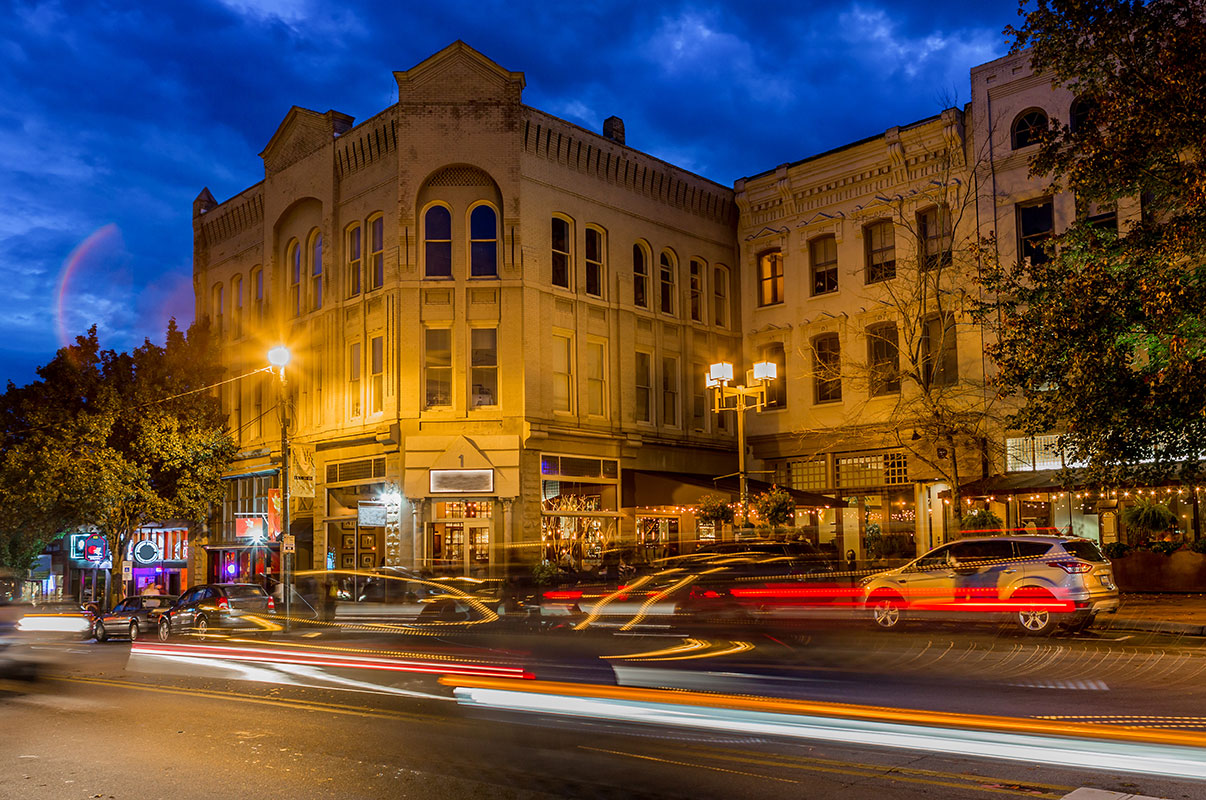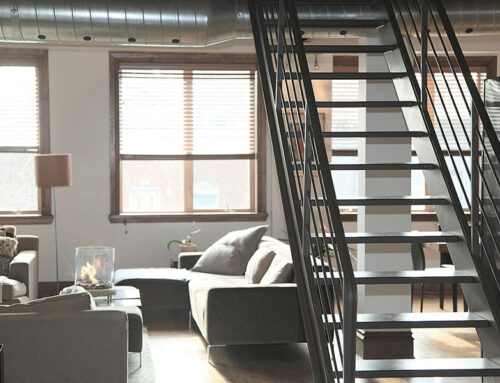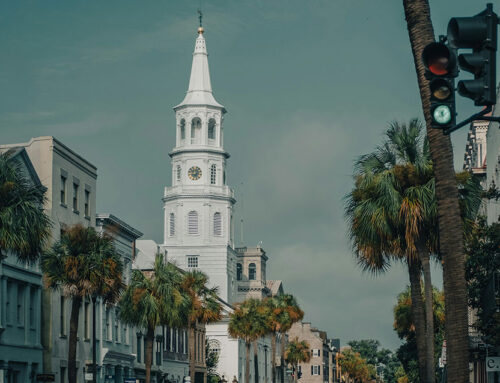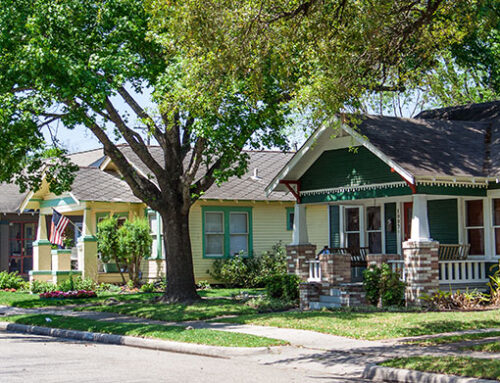
I seem to run into new and wanna-be real estate investors almost everywhere I turn. Just last weekend a young woman named Kerry approached me while I was touring the NASCAR Hall of Fame with visiting relatives. She’d overheard me talking with the family about some of the up and coming neighborhoods in Charlotte, NC that I was looking to invest in.
Though she hadn’t even started her training as a real estate investor yet, Kerry was eager to learn where she should plan to buy in the coming year, too. Not one to dismiss any opportunity to talk about my dream job—or my favorite southern city—I invited her to walk and talk with us for a spell.
The Most Promising Up and Coming Neighborhoods in Charlotte, NC
In other parts of the country, coming up to a stranger to ask for advice while they’re engaged in family fun at a museum might seem odd, even rude. But, part of what makes the south charming is the easy-going attitude most of us have towards one another. Whether we’re asking the questions or doing the answering, we know how to take our daily encounters in friendly stride. And, that sort of laid-back give-and-take never seems more apparent than when you get two investors together talking about real estate.
There is a lot to talk about when it comes to buying residential investment property in Charlotte, too. Home sales began to fall flat in several major metropolitan areas last year and the Queen City was no exception. It’s quite normal for real estate markets everywhere to experience peaks and valleys in prices, days on market, and number of sales.
But, as some cities cooled, worries of a country-wide recession started to grow. And, because Charlotte’s market downshift lasted nearly a year, I heard more than my fair share of concerns from local colleagues about the sustainability of their investing businesses during that time as well.
My concerns never hit critical mass, however. Sure, median home list prices dropped after peaking during the summer of 2018 and have stayed relatively flat since. But, median home sales prices have still been steadily climbing. In July of 2019, they reached $270,000. That’s a respectful bump from the year before. Provided you didn’t overspend when you bought and rehabbed an investment property in the last year or so, you should have been able to list it for a number the market could bear at selling time—and make a potentially decent profit.
Looking to 2020: The Charlotte, NC Real Estate Market
In 2020, medium home sales prices in Charlotte are expected to rise even higher thanks, in large part, to rising demand. Local employment is keeping pace with what’s happening on the national scale. And, multiple industries like aerospace and defense, automotive, and information technology are dominating the regional landscape. The low cost of living is a big draw, too. Together, these factors have already increased population estimates by almost 20% in ten years. And, every newcomer needs a place to call home.
Since the number of owner-occupied homes has historically pushed past 50% in Charlotte, it’s reasonable to expect that at least a good portion of them will want to buy a move-in ready house. The problem with Charlotte is that new home construction is starting to lag behind demand. The longer this gap doesn’t get bridged, however, the more opportunities you’ll have to be a part of the solution by investing in single-family homes to rehab and sell—or even hold as a rental.
And, some of the best places to find good deals are in up and coming Charlotte, NC neighborhoods where your entry point is low and the attraction to new homebuyers is high. For example:
North Division
NoDa—short for North Division—which sits squarely in the center of Charlotte’s artistic and culturally diverse reputation is by no means a neighborhood that likes to sit still. Once home to farmland, then textile manufacturing mills, NoDa’s economy began a slow and steady decline following the Depression. When the last of the mills closed nearly four decades later, and other industries seemed unable to get a profitable local foothold, NoDa became known more for its wealth of abandoned buildings than anything else.
Long-time residents, however, refused to let their hope deteriorate with the economy. And, this unshakeable sense of community pride helped inform the City of Charlotte’s decision to save this northeastern Charlotte town by the 1990s. The two decades that followed saw the restoration of decrepit buildings once slated for demolition, the transformation of old mills into art galleries and affordable rentals, and a buoyed interest from both big commercial enterprises and small family businesses.
It wasn’t long before people noticed. Driven by the area’s historic significance, a growing reputation as a hub for the arts and entertainment, and the economic return to glory, those people started moving in, too. Since NoDa is only a hop, skip, and a jump from downtown but provides small town affordability, people continue to move here.
And, that paints a pretty good picture for why you should park your investing dollars here. Demand is high in NoDa and, since median home sales prices haven’t yet outpaced affordability, appeal in 2020 is likely to grow. You can help meet that demand, participate in the neighborhood’s ongoing renaissance, and potentially pad your pocketbook, too—if you have enough leads to start buying properties to rehab today so that you can sell to the community’s newcomers of tomorrow.
Plaza Midwood
Slightly south of NoDa and directly east of downtown, Plaza Midwood makes 2020’s up-and-coming Charlotte neighborhood list because, despite its pricier entry point, demand for the neighborhood just keeps growing. A one-time near-city suburb in the throes of economic decline, Plaza Midwood got a shot at its own renaissance by the mid-1990’s much like its northern neighbor. The initial injection of public funding that helped restabilize Plaza Midwood’s local economy has been further fueled by a burgeoning restaurant and bar scene, the development of family-friendly amenities, and an inclusive attitude towards diversity.
Now, Plaza Midwood isn’t just a single stop on the city’s streetcar line. It’s home to multiple public transportation access points with several more planned as a part of the CityLynx Gold Line’s expansion. That’s a good thing since the appeal for homeownership here is widening, too.
And, that’s good for you if you can jump on board to buy, renovate, and sell houses to incoming residents sooner rather than later. Considered a seller’s market, demand to live in Plaza Midwood has already bumped median home sales prices by more than $100,000 in the last year. If those numbers keep rising as they’re expected to in 2020, you stand a chance of seeing better-than-average returns provided you’re able to buy property at below-market prices.
The best way to do that in this neighborhood is to connect with homeowners who are struggling to live where prices are rising and, therefore, more willing to sell quickly—directly to you.
Echo Hills
Until recently, the small, southeastern neighborhood of Echo Hills barely registered on most Charlotte residents’ radars. Partly because of its size and distance from downtown, it was easy to drive by, or through, and not realize you were in a Charlotte community with its own distinct identity. And, with remnants of high property crime rates that plagued the area for years, it wasn’t hard just to keep on driving, either.
Like most up-and-coming neighborhoods just on the cusp of transitioning, Echo Hills continues to struggle with crime. But, with other changes already well into the pipeline, like the improvement of local schools and better access to family-friendly amenities, crime rates will likely shift, too—only downward.
Anticipating this and other positive changes that may soon follow, interest in moving here has grown. That helped to push median home sales prices in Echo Hills to just over $400,000 by the spring of 2019. But, there remains a fair amount of renters in the neighborhood. So, when considering whether to buy an investment property or not in Echo Hills, be sure to factor in all of your options. You might find that buying property to hold as a rental is just as savvy a move for your portfolio as buying houses to rehab and immediately sell.
Sunset Road
North and slightly west of downtown is another little-known neighborhood—to those who don’t live there, anyway—called Sunset Road. For the residents who live there, however, there is no better place to be. It’s close enough to the freeway to make commuting to downtown easy, but not so close that the neighborhood loses its safe, suburban feel. The high number of BMX parks, athletic fields, nature preserves, and farm trails in the area only serve to boost its cross-generational appeal, too. More affordable than other parts of the Queen City, young professionals and growing families also like to claim Sunset Road home as well.
In fact, because it has so much to offer at a more reasonable price, the number of buyers looking at Sunset Road as the community they want to call home has grown. That’s not bad considering it takes a little digging to figure out just where the boundaries for this up-and-coming Charlotte neighborhood lie. But, those who do, buy a home here as fast as they can—which explains why median days on the market clocks in at only 43.
Median home sales prices aren’t going up nearly as fast as some neighborhoods, but they are moving forward at a slow and steady pace. Once everyone gets wind of how inexpensive this neighborhood is, however, you can expect that pace to change. Either way, you won’t lose by investing in Sunset Road homes as long as you buy and renovate at the right price, then sell at the rising market value.
Of course, you’ve got to know how to find real estate deals in each of these neighborhoods to have any kind of impact on your immediate bottom line and your investment business overall. And, whatever lead generation strategy you use should also continue sending you opportunities from up and coming Charlotte, NC, neighborhoods even as those neighborhoods change—and you can bet that they will. After all, things move pretty fast here in the Queen City. Your real estate investing business had better keep up.
Your Best Resource for Investing in the South’s Queen City
As a Charlotte native, I’ve had the pleasure of watching this city evolve over the years in ways that none of us could have anticipated. Honestly, it’s made me proud—especially when I see how many out-of-towners come here to experience the charm and elegance of the south’s Queen City for themselves and, then, decide to stay. When I think about how investing in local real estate over the last couple of decades has contributed to the city’s growth, my sense of pride swells that much more.
Making a living by investing in up and coming Charlotte, NC, neighborhoods through the years, however, would not have been possible without the right marketing tools and resources. That’s because it takes more than just knowing where you should park your investing dollars. You’ve also got to have a way to beat your competitors to the finish line when you do find good deals. And, you’ve got to be able to find enough deals to build a professional real estate business.
That’s why I told Kerry that her best resource for finding houses to buy, renovate, and sell was the HomeVestors® “We Buy Ugly Houses®” national ad campaign. This campaign, which is available to all independently owned and operated HomeVestors® franchisees, like me, reaches motivated sellers of smaller, older, “ugly” houses through TV, radio, and print every day. And, when Charlotte homeowners call in for help, those calls come right to me. It’s the best way I know to get a head start on your investing career in 2020 and keep you in the running every year thereafter.
Don’t wait to speed up your access to the some of the best real estate investing deals Charlotte has to offer. With limited franchise opportunities available, the time to request more information about joining the HomeVestors® team is now.
Each franchise office is independently owned and operated.
Contact
"*" indicates required fields





